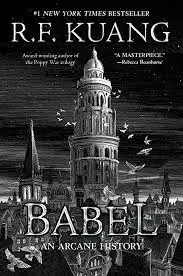I heard the problem was with yeast interacting poorly with their digestion. Please, power of the internet, tell me if I’m wrong!
I do this sooo often. Often times I just write intro stuff to cool ideas that might or might not be connected to what I should write about. I find honing a page much easier than writing it, so I try to write something and recursively make it into what I need.
I find it so upsetting that most of university’s focus is building marketable skills. That should be the side result! The main result should be in-depth education in a field of your choosing, while building critical thinking skills. Not “let’s give you 5 more years of fact based learning while cherry picking the facts to tailor it your future job”
Last winter, our city had red flooding warnings, part of the city center under water and blocked to traffic. The city hall warning to not cross bridges unless absolutely necessary. And life went on as usual?! I was flabbergasted that the school closed, but not the university nor anything else.
And sometimes the importance of your work is overstated…
I strongly believe (it’s a belief, not a fact), that appropriately controlled capitalism would be a good system. Then I look at all EU countries and the same problem pops up all the time: rich people get richer and richer. There should be a wealth cap of sorts. It’s unethical that some can have anything and everything while almost everyone else can’t.
Let’s then not talk about the control of the news/media that obviously follows from people accumulating wealth like literary dragons… or the whole lobbying industry…
So, I believe, but I also see all manners of counter-proofs all around me and I see no real solutions.
This gives me flashbacks to the one time in my life I really wanted to answer “okay boomer”
My father in law was supporting the claim the climate change might exist, but it’s nothing we have to concern ourselves about because it’s going to take decades to do anything.
And I was like: you have grandkids, they will be there in decades! And: you just experienced the first drought of your country, how is that not climate change??
After half an hour going in rounds I gave up and bit my tongue to not torpedo our relationship. Two years later he admitted that maybe there was something about climate change nowadays…
“The only way to not be exterminated is to exterminate”… chilling
Once, I got a reviewer stating “in the code, I doubt line 43 was supposed to be submitted”
Line 43: FUUUCK, DOES NOT WORK
Having a small kid, I find it hilarious and heartwarming to see sooo many people of all ages wanting to interact just to get a laugh out of a small human!
My little piece of advice: you don’t have to think about the future, tomorrow, next week, they are all far off. Think about now, this hour, the next 5 minutes, or whatever stretch of time seems manageable. What do you do now? Cook dinner? Watch a show? Cry in the shower? The future might be scary and too much to manage now. You’ll handle it when you get to it. Now, you only have to think about right now.
Verbena tea is calming and soothing. Lavender is relaxing. Green tea for me is a calming ritual.
You got this. Maybe it doesn’t feel like it, but you only need to do one step, and you got that one step.

In the Alps, there are already quite some ghost towns. Small towns either turned into touristic villages or disappeared over the last 50 years. Others were border towns that slowly went out of business. So many are hanging in by a thread, with increasingly old population.